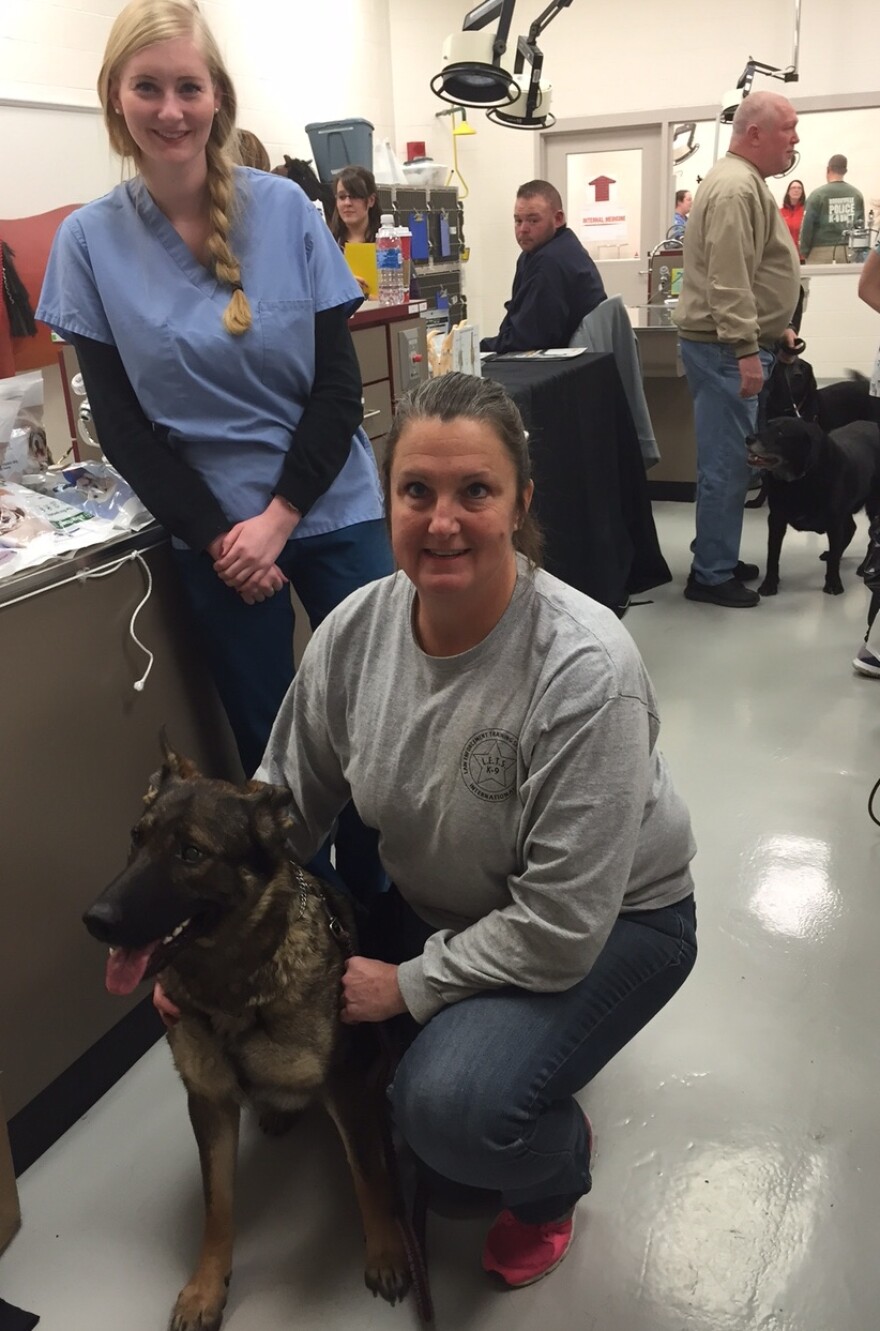Service dogs like police canines, search and rescue, and drug-sniffing dogs need to be in top health in order to perform their duties. Veterinary care specialists and students are giving up their Sunday morning to help out some local canine heroes.Some 75 good dogs will undergo preventive screenings for everything from cardiac conditions to vision problems as part of the 25th annual Canine Corps Health Clinic.
"A lot of the things are similar to what we would look for in a normal dog," says veterinarian Susanna Schwartz, DVM, DACVS. "But these dogs do have particular specialties as to what they do so they do get some different injuries that we see more commonly in these dogs than in other dogs."
The screenings are free because, as Schwartz points out, if a department exceeds its budget, there may not be enough money to take care of all the animals.
"It is budgeted in the taxpayers' dollars for some of the dogs, but some of these are search and rescue dogs owned by private citizens that do this out of the goodness of their hearts."
They also provide screenings for retired working dogs living in private homes.

Now in her ninth year, Schwartz says she's found torn ACLs and back injuries along with more serious problems like tumors and cataracts. The dogs are referred to their primary veterinarians for treatment.
It's rewarding work. "For these officers, this really is their partner. They live together, they work together all day, they're together 24/7 and they will do anything for their partners, for their dogs."
The preventive screenings are focused on the particular needs of working dogs. A laboratory company is offering free blood work, as well.
"These exams can pinpoint significant health problems early so they can then be treated proactively," Schwartz points out. "This puts the dogs and their handlers ahead of the game and keeps them healthy for their difficult work."
Veterinarians, veterinary technology students from UC Blue Ash, and specialists from around the region volunteer their time to participate.
UC Blue Ash Assistant Professor Stacey Benton says it's helpful for students, too.
"This is a wonderful opportunity for our veterinary technician students to interact with the dogs and their handlers, learn about the amazing work they do, and see how important preventive health care is to their success."




